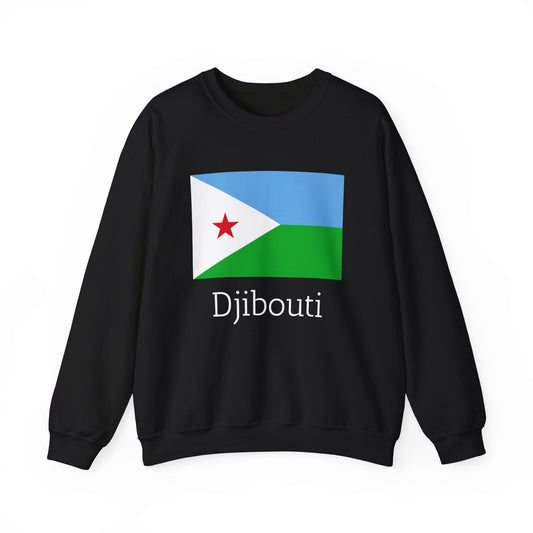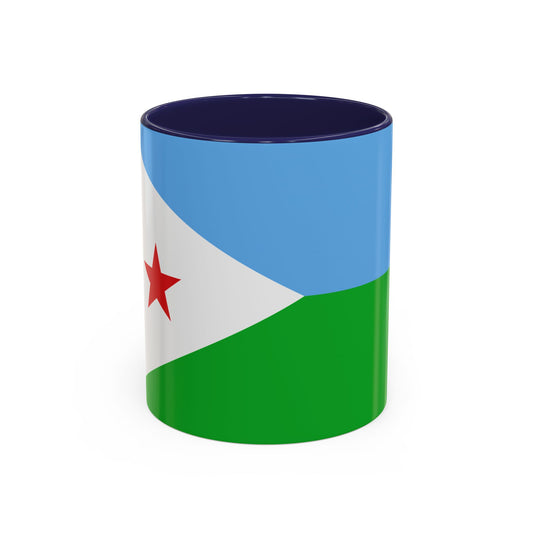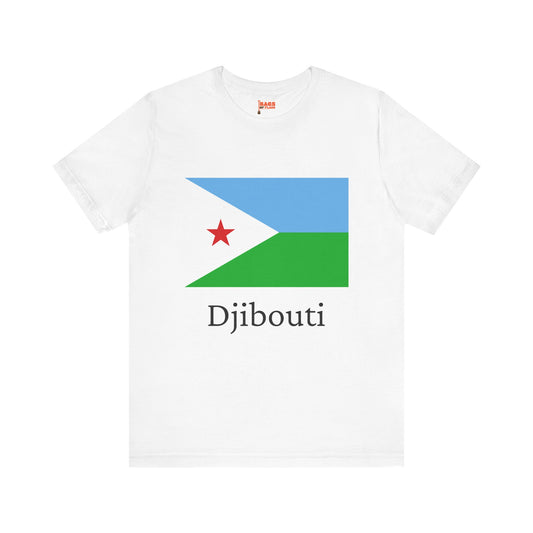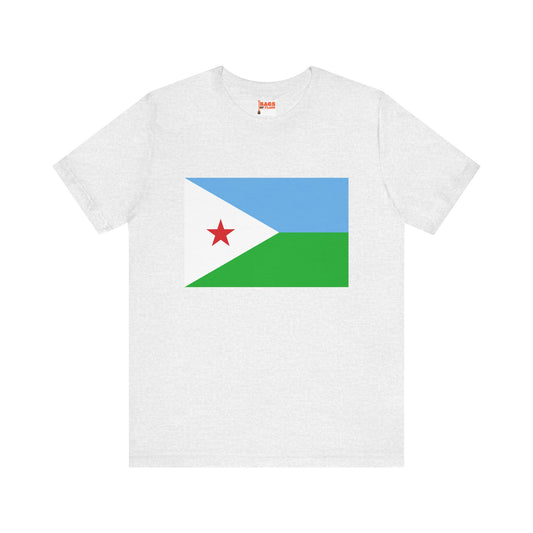-
Djibouti Leather Patch Hat
Regular price $18.85 USDRegular priceUnit price / per -
Djibouti Pillow
Regular price $22.65 USDRegular priceUnit price / per -
Djibouti Backpack
Regular price $59.79 USDRegular priceUnit price / per -
Djibouti Sweatshirt
Regular price $34.15 USDRegular priceUnit price / per -
Djibouti Flag Sweatshirt
Regular price $34.15 USDRegular priceUnit price / per -
Djibouti Mug
Regular price $11.65 USDRegular priceUnit price / per -
Djibouti Trucker Cap
Regular price $14.90 USDRegular priceUnit price / per -
Djibouti Hoodies
Regular price $34.40 USDRegular priceUnit price / per -
Djibouti T-shirts
Regular price $22.79 USDRegular priceUnit price / per -
Djibouti Flag Hoodies
Regular price $34.40 USDRegular priceUnit price / per -
Djibouti Flag on T-shirt
Regular price $22.79 USDRegular priceUnit price / per
Collection: Djibouti
The Djibouti flag is a powerful national symbol representing the Djiboutian people's unity and pride. We will explore the design, historical context, symbolism, current relevance, and additional facts about the Djibouti flag.
Overview of the Djibouti Flag

The national flag of Djibouti showcases a distinct and symbolic design that features two horizontal bands of light blue and light green, representing critical elements of the country's geography and resources. A white triangle that serves as a backdrop to a red, five-pointed star is dominating the hoist side. This star is centered within the triangle and is flanked by two white rays that extend toward the flag's fly side. Each color and symbol on the flag carries deep meaning, from the aspiration for peace to the unity of the nation's ethnic groups.
The flag's configuration is a nod to the country's past struggles and achievements and a reminder of its aspirations for the future. Unique in its composition, the Djibouti flag stands as a proud emblem of the nation's identity, heritage, and the collective hopes of its people. Its design thoughtfully encapsulates significant aspects of Djibouti's natural beauty, its quest for independence, and the harmonious blend of its diverse communities.
Historical Context

On June 27, 1977, Djibouti declared its independence from France, marking the adoption of its national flag. The flag's design, conceived by Mahmoud Harbi, a local student, encapsulated the nation's aspirations and culminated its long journey toward sovereignty. This event was a significant milestone in Djibouti's history, symbolizing the end of colonial rule and the beginning of a new era as an independent state.
The flag's choice of symbols and colors was intentional, reflecting the Djiboutian people's collective identity and shared values. Over the years, the flag has remained unchanged, standing as a testament to the enduring spirit and resilience of the nation. It has witnessed the transformation of Djibouti from a colony to a sovereign country, playing a pivotal role in unifying its citizens. The flag's adoption day is celebrated annually, reinforcing its significance in the hearts and minds of the Djiboutian people. This moment in history represents the birth of a nation and the unity and strength of its diverse communities coming together under a common emblem.
Symbolism of the Djibouti Flag
The symbolic elements and hues of the Djibouti flag carry rich meanings tied to the nation's core values and natural and societal landscape. The light blue band atop symbolizes the expansive sky and the vast waters surrounding Djibouti, reflecting the country's pivotal location near strategic waterways. Below, the light green stripe represents the fertile land and underscores the importance of agriculture and the earth's bounty to the nation’s livelihood. The white triangle is central to the flag's design, which projects a message of peace and harmony among all Djiboutians.
Within this triangle, the red, five-pointed star shines brightly as a beacon of unity and independence, signaling the country's liberation and sovereign status. Surrounding the star, two white rays extend outward, signifying the coming together of Djibouti's primary ethnic groups, the Afar and the Issa. This element embodies national solidarity and the collective endeavor towards a peaceful coexistence. Each aspect of the flag's design is a deliberate nod to the ideals and aspirations that bind the Djiboutian people, constantly reminding them of their shared heritage and the promise of a united future.
Current Relevance
Today, the Djibouti flag remains a central emblem of the nation, woven into the fabric of daily life and public ceremonies. It is proudly hoisted at a plethora of national events, symbolizing unity and sovereignty during moments of both celebration and solemn remembrance. Government buildings, educational institutions, and public squares are adorned with the flag, reflecting its role as a constant reminder of the country’s ideals and aspirations. In military contexts, the flag is a badge of honor carried and displayed during official parades and ceremonies to inspire patriotism and respect for those who serve.
The flag's significance extends beyond formal occasions; it is a source of national pride during international sports competitions, where athletes don the national colors to represent Djibouti on a global stage. Its presence at such events fosters a sense of community and shared identity among Djiboutians at home and abroad.
Discussions around the flag’s representation have surfaced, sparking a dialogue about its inclusivity and whether adjustments might better reflect the nation's ethnic and cultural diversity. Though no changes have been implemented, these conversations underscore the flag's dynamic role as a living symbol of the nation's evolving identity. This ongoing relevance ensures that the Djibouti flag remains a historical emblem and a contemporary icon of unity and pride.
Additional Facts
The Djibouti flag commands a set of unique protocols regarding its display and handling, reflecting the country’s deep respect for this symbol of national identity. For instance, when the flag is displayed alongside other national flags, it must occupy a position of honor; this means it should be placed at the center or highest point when raised with multiple flags. Additionally, the flag should never touch the ground or be used in any manner that could be considered disrespectful, such as for decorative or advertising purposes that detract from its dignity.
Another protocol involves the flag’s position during times of mourning. It is a common practice in Djibouti to fly the national flag at half-mast to honor the memory of prominent figures who have passed away or to mark significant periods of national grief. This gesture symbolizes the nation’s collective mourning and respect for the deceased.
A lesser-known fact about the flag is its representation at international events, which symbolizes the Djiboutian people's unity and achievements. The flag’s presence at such venues serves as a reminder of the nation’s sovereignty and the collective identity of its citizens on the world stage. Furthermore, including a five-pointed red star makes the Djibouti flag distinct among the world's flags, symbolizing the country’s bright future and guiding principles.






















